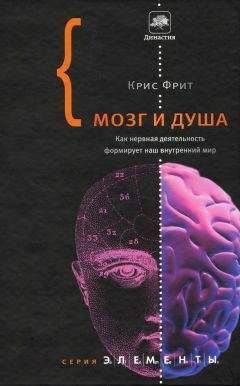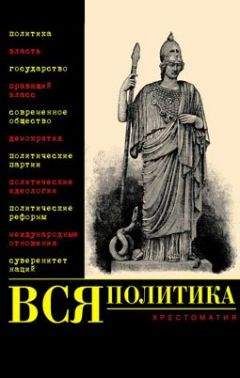and frivolous Le"mian’s110 poems: ‘Our ancestor Noah was a
brave man...’, and others. The text, however, had been cor-
109 “To understand all is to forgive all.”
110 Boles"aw Le#mian (born Boles"aw Lesman; 18781-1937) was a Polish
poet, artist and member of the Polish Academy of Literature. He was one of
the most influential poets of the early 20th century in Poland.[Editor’s note.]
250
NORMAL PEOPLE UNDER PATHOCRATIC RULE
rected with humor and literary talent, eliminating whatever
irritated these young people raised during difficult times. Was
it an unintended result?”
~~~
As a result of all these transformations, including the de-
egotization of thought and attitude connected thereto, society
becomes capable of a mental creativity which goes beyond
normal conditions. This effort could be useful in any cultural,
technical, or economic area if the authorities did not oppose
and stifle it because they feel threatened by such activity.
Human genius is not born of lazy prosperity and among
genteel camaraderie, but rather stands in perpetual confronta-
tion with a recalcitrant reality which is different from ordinary
human imaginations. Under such conditions, wide-scale theo-
retical approaches are found to have practical existential value.
The old system of thought which remains in use in free coun-
tries starts to look backward, naive, and bereft of feeling of
values.
If nations which arrived at such a state were to regain their
freedom, many valuable accomplishments of human thought
would mature within a short time. No excessive fears would be
in order as to whether such a nation would then be capable of
elaborating a workable socio-economic system. Quite the con-
trary: the absence of egoistical pressure groups, the conciliatory
nature of a society which has years of bitter experience behind
it, and the penetrating, morally profound thought processes
would permit the way out to be found relatively rapidly. Dan-
ger and difficulty would rather come from outside pressures on
the part of nations which do not adequately understand the
conditions in such a country. But unfortunately, the pathocracy
cannot be dosed as a bitter medicine!
The older generation, raised in a normal man’s country,
generally reacts by developing the above-mentioned skills, i.e.
by enrichment; the younger generation, however, was raised
under pathocratic rule and thus succumbs to a greater world
view impoverishment, reflex rigidification of personality, and
domination by habitual structures, those typical results of the
operation of pathological personalities. Paralogistic propaganda
and its corresponding indoctrination are consciously rejected;
POLITICAL PONEROLOGY
251
however, this process demands time and effort which could
better be used for active apperception of valuable contents. The
latter are accessible only with difficulty, due both to limitations
and to apperceptive problems. There arises the feeling of a
certain void which is hard to fill. In spite of human good will,
certain paralogisms and paramoralisms, as well as cognitive
materialism, anchor and persevere in brains. The human mind
is not able to disprove every single falsity which has been sug-
gested to it.
The emotional life of people raised within such a deviant
psychological reality is also fraught with difficulties. In spite of
critical reason, a certain saturation of a youngster’s personality
with pathological psychological material is unavoidable, as is a
degree of primitivization and rigidity of feelings. The constant
efforts to control one’s emotions, so as to avoid having some
stormy reaction provoke repression on the part of a vindictive
and retentive regime, cause feelings to be repressed into a role
of something rather problematic, something which should not
be given a natural outlet. Suppressed emotional reactions sur-
face later, when the person can afford to express them; they are
delayed and inappropriate to the situation at hand. Worries
about the future awaken egotism among people thus adapted to
life in a pathological social structure.
Neurosis is a natural response of human nature if a normal
person is subordinated to domination of pathological people.
The same applies to the subordination of a society and its
members to a pathological system of authority. In a pathocratic
state, every person with a normal nature thus exhibits a certain
chronic neurotic state, controlled by the efforts of reason. The
intensity of these states varies among individuals, depending
upon different circumstances, usually more serious in direct
proportion to the individual’s intelligence. Psychotherapy upon
such people is only possible and effective if we can rely on
adequate familiarity with the causes of these states. Western
educated psychologists thus prove completely impractical with
regard to such patients.
A psychologist working in such a country must develop
special operational techniques unknown and even unfathom-
able to specialists practicing in the free world. They have the
252
NORMAL PEOPLE UNDER PATHOCRATIC RULE
purpose of partially liberating the voice of instinct and feeling
from this abnormal over-control, and of rediscovering the voice
of nature’s wisdom within, but this must be done in such a way
as to avoid exposing the patient to the unfortunate results of
excessive freedom of reaction in the conditions under which he
must live. A psychotherapist must operate carefully, with the
help of allusions, because only rarely may he openly inform the
patient of the system’s pathological nature. However, even
under such conditions, we can achieve a greater experiential
freedom, more appropriate thought processes, and better deci-
sion making capabilities. As a result of all this, the patient sub-
sequently behaves with greater caution and feels much safer.
If Western radio stations, unhampered by the fears of psy-
chologists on the other side, abandoned the simple counter
propaganda in favor of a similar psychotherapeutic technique,
they would contribute mightily to the future of countries still
under pathocratic rule today. Toward the end of this book, I
shall attempt to persuade the reader that psychological matters
are as important to the future as grand politics or powerful
weapons.
Understanding
Comprehending those normal people, whether outstanding
or average, fated to live under pathocratic rule, their human
nature and their responses to this basically deviant reality, their
dreams, their methods of comprehending such a reality (includ-
ing all the difficulties along the road), and their need to adapt
and become resistant (including the side-effects) is a sine qua
non precondition for learning the behavior that would effec-
tively assist them in their efforts to achieve a normal man’s
system. It would be psychologically impossible for a politician
in a free country to incorporate the practical knowledge such
people acquired over many years of day to day experience.
This knowledge cannot be transmitted; no journalistic or liter-
ary efforts will ever achieve anything in this area. However, an
analogous science formulated in objective naturalistic language
can be communicated in both directions. It can be assimilated
by people who have no such specific experiences; it can also be
back transmitted over there where a great need for this science
POLITICAL PONEROLOGY
253
exists as do the minds which are already prepared to receive it.
Such a science would actually act upon their battered personali-
ties in much the same way as the best of medicines. Mere
awareness that one was subject to the influence of a mental
deviant is in and of itself a crucial part of treatment.
Whoever wants to maintain the freedom of his country and
of the world already threatened by this macrosocial pathologi-
cal phenomenon, whoever would like to heal this sick planet of
ours, should not only understand the nature of this great dis-
ease, but should also be conscious of potentially regenerative
healing powers.
Every country within the scope of this macrosocial phe-
nomenon contains a large majority of normal people living and
suffering there who will never accept pathocracy; their protest
against it derives from the depths of their own souls and their
human nature as conditioned by properties transmitted by
means of biological heredity. The forms of this protest and the
ideologies by which they would like to realize their natural
wishes may nevertheless change.
The ideology or societal structure via which they would like
to regain their human right to live in a normal man’s system
are, however, of secondary importance to these people. There
are of course differences of opinion in this area, but they are
not likely to lead to overly violent conflict among persons who
see before them a goal worthy of sacrifice.
Those whose attitudes are more penetrating and balanced
see the original ideology as it was before its caricaturization by
the ponerization process, as the most practical basis for effect-
ing society’s aims. Certain modifications would endow this
ideology with a more mature form more in keeping with the
demands of present times; it could thereupon serve as the foun-
dation for a process of evolution, or rather transformation, into
an socio-economic system capable of adequate functioning.
The author’s convictions are somewhat different. Grave dif-
ficulties could be caused by outside pressure aiming at the in-
troduction of an economic system which has lost its historically
conditioned roots in such a country.
People who have long had to live in the strange world of
this divergence are therefore hard to understand for someone
254
NORMAL PEOPLE UNDER PATHOCRATIC RULE
who has fortunately avoided that fate. Let us refrain from im-
posing imaginings upon them which are only meaningful
within the world of normal man’s governments; let us not pi-
geonhole them into any political doctrines which are often
quite unlike the reality they are familiar with. Let us welcome
them with feelings of human solidarity, reciprocal respect, and
a greater trust in their normal human nature and their reason.
CHAPTER VII
PSYCHOLOGY AND PSYCHIATRY
UNDER PATHOCRATIC RULE
If there were ever such a thing as a country with a commu-
nist structure as envisaged by Karl Marx, wherein the working
people’s leftist ideology would be the basis for government,
which, I believe, would be stern, but not bereft of healthy hu-
manistic thought, the contemporary social, bio-humanistic, and
medical sciences would be considered valuable and be appro-
priately developed and used for the good of the working peo-
ple. Psychological advice for youth and for persons with vari-
ous personal problems would naturally be the concern of the
authorities and of society as a whole. Seriously ill patients
would have the advantage of correspondingly skillful care.
However, quite the opposite is the case within a pathocratic
structure.
When I came to the West, I met people with leftist views
who unquestioningly believed that communist countries existed
in more or less the form expounded by American versions of
communist political doctrines. These persons were almost cer-
tain that psychology and psychiatry must enjoy freedom in
those countries referred to as communist, and that matters were
similar to what was mentioned above. When I contradicted
them, they refused to believe me and kept asking why, “why
256
PSYCHOLOGY AND PSYCHIATRY
isn’t it like that?” What can politics have to do with psychiatry?
111
My attempts to explain what that other reality looks like met
with the difficulties we are already familiar with, although
some people had previously heard about the abuse of psychia-
try. However, such “whys” kept cropping up in conversation,
and remained unanswered.
The situation in these scientific areas, of social and curative
activities, and of the people occupied in these matters, can only
be comprehended once we have perceived the true nature of
pathocracy in the light of the ponerological approach.
Let us thus imagine something which is only possible in
theory, namely, that a country under pathocratic rule is inadver-
tently allowed to freely develop these sciences, enabling a
normal influx of scientific literature and contacts with scientists
in other countries. Psychology, psychopathology, and psychia-
try would flourish abundantly and produce outstanding repre-
sentatives.
What would the result be?
111 In 1950, the Russian Academy of Sciences determined everyone would
follow the theory of the Moscow professor Andrei Snezhnevsky, which held
that “anybody could suffer from ‘slowly progressing schizophrenia’. One
could suffer from it without knowing, but once Snezhnevsky or one of his
followers had ascertained that you were ill with it, you had to be locked up
and knocked down with sedatives immediately, or the disease would ‘pro-
gress’. ...dissidents are simply locked up in a psychiatric institution and said
to be insane.”
Up until his death in 1987 Snezhnevsky denied that his theory was being
abused by the Soviet regime. But his former assistants now admit, that he




